简体中文
繁體中文
English
Pусский
日本語
ภาษาไทย
Tiếng Việt
Bahasa Indonesia
Español
हिन्दी
Filippiiniläinen
Français
Deutsch
Português
Türkçe
한국어
العربية
Why Regulatory Compliance Is the Secret Ingredient to Trustworthy Forex Brokers
Abstract:Regulatory compliance is the foundation of broker trustworthiness, ensuring transparency, client protection, and ethical trading in the forex market.
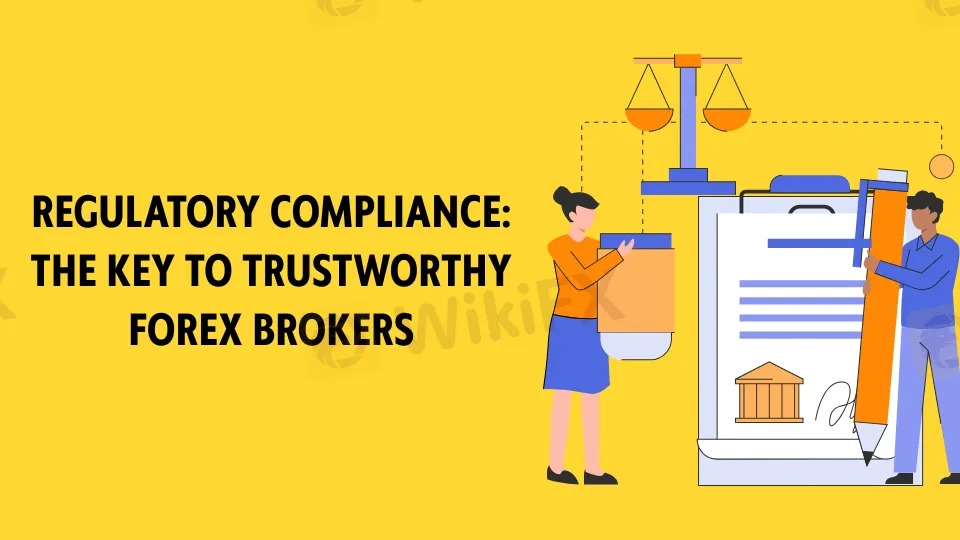
In the fast-paced world of forex trading, trust is the currency that matters most. Every day, millions of traders entrust their hard-earned money to brokers, hoping for fair play and transparent dealings. But what truly separates a trustworthy broker from one thats just playing the part? The answer is regulatory compliance—a behind-the-scenes force that quietly shapes the safety and integrity of the entire industry.
Regulatory compliance isn‘t just a box-ticking exercise. It’s a rigorous process that demands brokers adhere to strict rules set by financial authorities. These rules cover everything from how brokers handle client funds to the transparency of their pricing and the ethical standards they uphold. When a broker is regulated, it means theyre held accountable by an external body, often with the power to audit, sanction, or even shut down those who break the rules.
Why does this matter so much? Imagine trading with a broker who can change the rules on a whim, manipulate prices, or disappear with your funds. Unfortunately, such stories aren‘t just urban legends—they’re real risks in an unregulated environment. Regulatory compliance acts as a shield, protecting traders from fraud, mismanagement, and unfair practices. It ensures that client funds are kept in segregated accounts, separate from the brokers operational money, making it harder for your investment to vanish if the company runs into trouble.
Transparency is another cornerstone of regulation. Regulated brokers are required to disclose their financial health, trading conditions, and any potential conflicts of interest. This level of openness allows traders to make informed decisions, compare brokers on a level playing field, and spot red flags before it‘s too late. It’s no wonder that experienced traders often refuse to work with unregulated brokers, no matter how attractive their offers might seem.
But regulation isn‘t just about rules and punishments. It’s about fostering a culture of ethical trading. Regulated brokers are expected to treat clients fairly, provide accurate information, and resolve disputes through established channels. This creates an environment where traders can focus on strategy and analysis, rather than worrying about the safety of their funds or the legitimacy of their trades.
Real-Life Lessons: When Regulation Makes All the Difference
Take Anna, a new trader enticed by promises of huge returns from an unregulated broker she found online. At first, her trades seemed to go well and her balance grew. But when she tried to withdraw her profits, the broker stalled, citing vague “verification issues.” Eventually, the broker disappeared with her money, and Anna realized too late that she had no protection or recourse. Sadly, stories like Annas are common among those who trust unregulated brokers.
Now compare this with Michael‘s experience. He chose a broker licensed by a respected regulator. When a technical glitch caused him a loss, he filed a complaint with the regulatory authority. After an investigation, the regulator ruled in Michael’s favor and the broker reimbursed him. Michaels story shows how regulation offers real protection and a path to resolution if things go wrong.
These contrasting stories highlight why regulatory compliance is far more than a formality—it‘s a vital safety net. Regulation means brokers must follow strict standards, giving traders peace of mind and a way to recover losses if disputes arise. Before opening an account, always check a broker’s regulatory status. The difference could mean everything for your trading security and success.

For those navigating the crowded forex landscape, finding a broker that ticks all these boxes can feel overwhelming. Thats where tools like WikiFX come into play. WikiFX is a global forex broker inquiry platform designed to help traders verify the regulatory status of brokers, assess their credibility, and avoid potential scams. Key features include:
- Comprehensive Regulatory Database: Instantly check if a broker is licensed by recognized authorities.
- Broker Scorecard: Evaluate brokers based on transparency, user reviews, and compliance records.
- Risk Alerts: Receive notifications about suspicious brokers or regulatory actions.
- User Reviews and Ratings: Learn from the experiences of other traders to make informed choices.
By leveraging platforms like WikiFX, traders gain an extra layer of protection and insight, making it easier to identify brokers who treat regulatory compliance not as a burden but as the secret ingredient to building lasting trust. In the end, a regulated broker isn‘t just a safer choice—it’s the foundation of a successful trading journey.

Disclaimer:
The views in this article only represent the author's personal views, and do not constitute investment advice on this platform. This platform does not guarantee the accuracy, completeness and timeliness of the information in the article, and will not be liable for any loss caused by the use of or reliance on the information in the article.
Read more
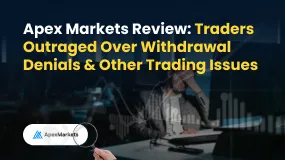
Apex Markets Review: Traders Outraged Over Withdrawal Denials & Other Trading Issues
Struggling to access fund withdrawals from Apex Markets for months? Does the broker remain silent on fund withdrawal issues? Does the Saint Vincent and the Grenadines-based forex broker reject your winning trades? Have you failed to get a refund into the card used for deposits? Did the broker deduct from your trading account instead? Traders have been imposing these scam allegations while sharing the Apex Markets Review online. We read the reviews and shared some of them below. Take a look!
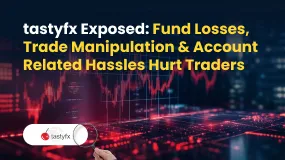
tastyfx Exposed: Fund Losses, Trade Manipulation & Account Related Hassles Hurt Traders
Are fund losses normal for you at tastyfx? Does the US-based forex broker constantly manipulate prices to hit your trading experience? Do you fail to receive a reply from the broker on your fund withdrawal requests? Do you constantly face trading account issues with tastyfx? It’s time to read the tastyfx review shared by traders online.
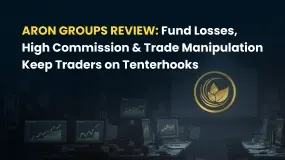
Aron Groups Review: Fund Losses, High Commission & Trade Manipulation Keep Traders on Tenterhooks
Have you lost your hard-earned capital while trading via Aron Groups Broker? Has the high commission charged by the broker substantially reduced your trading profits? Does the Marshall Islands-based forex broker constantly manipulate spreads to widen your capital losses? Have you been lured into trading courtesy of Aron Groups No Deposit Bonus, only to find that you had to deposit capital to get a bonus? All these and many more trading issues have become synonymous with the experience of Aron Groups’ traders. Consequently, many traders have shared negative Aron Groups reviews online. In this article, we have shared some of their reviews.
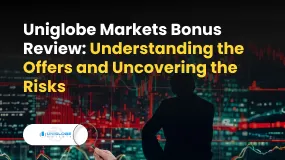
Uniglobe Markets Bonus Review: Understanding the Offers and Uncovering the Risks
Many traders start looking for a new broker by searching for special deals and bonuses. The phrase "Uniglobe Markets no deposit bonus" is something people often search for. Let's address this question clearly and directly. Based on all the information we have, Uniglobe Markets does not currently offer a no-deposit bonus. Instead, this broker focuses on bonuses that require you to deposit your own money first. To get any bonus credits, traders must put in their own capital. Read on to learn how this entire bonus works out for traders.
WikiFX Broker
Latest News
The United States Outgrows All Its Major Peers
PINAKINE Broker India Review 2025: A Complete Guide to Safety and Services
PINAKINE Broker Review: A Complete Look at Its Services and Risks
Voices of the Golden Insight Award Jury - Simon So, Chief Experience Officer of Hantec Financial
Seychelles FSA Flags Clone Website Impersonating Admiral Markets
Canary Wharf Address Scam Resurfaces: FCA Exposes 20+ Clone Template Forex Platforms
He Thought It Was a Crypto Investment; It Cost Him RM1.2 Million
Private payrolls rose 42,000 in October, more than expected and countering labor market fears, ADP says
Yields Rise, Rate-Cut Odds Slide As ISM Services Survey Signal Inflation Fears
Op-ed: The fuel for the AI boom driving the markets is advertising. It is also an existential risk.
Currency Calculator




